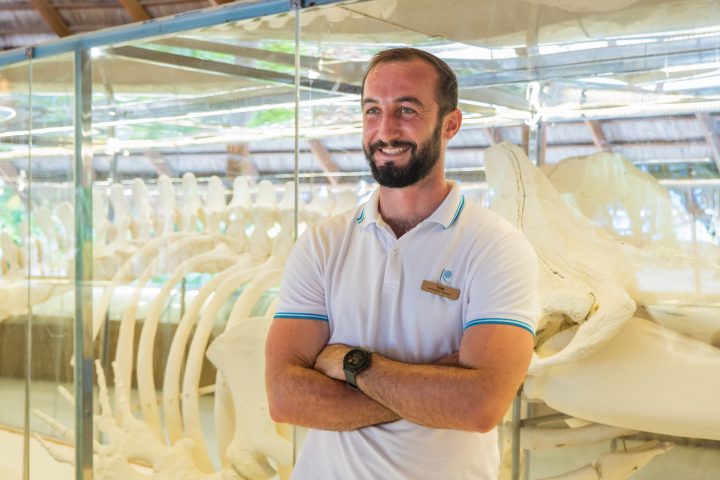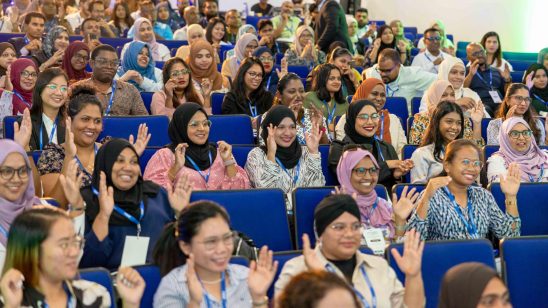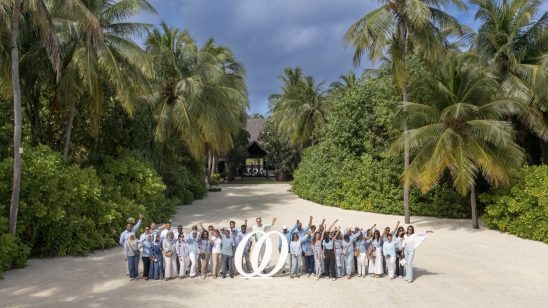
Tom Osborne drives groundbreaking environmental initiatives at Kuramathi Maldives
At Kuramathi Maldives, sustainability is more than a mission—it is a guiding principle embedded into daily operations. Spearheading these efforts is Tom Osborne, the resort’s Sustainability Manager, who brings a strong academic and practical background to the role. With a BSc and MRes in Marine Biology from Swansea University, Osborne is committed to creating meaningful environmental impact, guided by his belief in making a ‘big difference in a small place.’
Originally from Cornwall, the UK, Osborne’s connection to the natural world sparked an early passion for marine biology, with his research initially centred on juvenile green turtles. His conservation work has spanned diverse environments, including Costa Rica, Oman, Saudi Arabia, and Kenya, where he helped establish a community eco-centre.
At Kuramathi, Osborne leads numerous sustainability initiatives, ensuring the resort aligns with Travelife sustainability standards, optimises energy efficiency, and engages in impactful environmental projects. One such initiative is the expansion of The Muraka Coral Regeneration Project, developed in collaboration with the Maldives Coral Institute (MCI). The project currently comprises 240 coral frames in the lagoon, supporting over 3,600 coral fragments.
“We aim to add 200 more coral frames in the coming months, bringing the total to over 5,000 coral fragments,” Osborne shared. “Although we still have a long way to go to reach our ultimate goal of 1,000 frames, we remain fully committed to our mission.”
Under Osborne’s leadership, the resort has continued longstanding sustainability measures, such as eliminating single-use plastics and reducing food waste. His environmental philosophy, rooted in the idea that humanity “borrows the Earth from our children,” underscores his dedication to ecological stewardship.
Osborne actively promotes scientific collaboration, engaging with both local and international researchers and universities. Currently, the resort is hosting master’s students pursuing critical marine research. One student is studying grey reef shark populations around Madivaru, while three others are analysing the carbonate budget of the house reef—an important metric for evaluating the reef’s potential as a carbon sink and its role in climate mitigation.
Further research collaborations are planned for September and October. Two students from Munich will explore how the reef’s chemosensory signals influence larval fish recruitment, and a student from Milan will examine marine species associated with coral frames to assess biodiversity and restoration outcomes.
To reduce reliance on fossil fuels, Kuramathi Maldives is installing a solar power system across 19 resort buildings. This initiative is expected to generate approximately 942,000 kWh of electricity annually, saving an estimated 255,000 litres of diesel per year.
Kuramathi’s Eco Centre embodies the resort’s commitment to sustainability through education, research, and local engagement. It features a hydroponic garden that supplies fresh produce to the resort’s restaurants while minimising food miles and emissions. The centre also hosts guided snorkelling safaris and educational presentations to help guests better understand the island’s vibrant marine life.
Kuramathi also prioritises community outreach through programs such as the Rasdhoo Blue Tide Swim Club. Each month, 25 children from the neighbouring island of Rasdhoo participate in marine education sessions, both in and out of the water, with guidance from the resort’s Eco Centre team. These efforts aim to inspire the next generation of ocean stewards.
From coral regeneration and marine research to renewable energy and youth education, Kuramathi Maldives continues to lead by example in sustainable hospitality. Under the guidance of Tom Osborne, the resort remains steadfast in its mission to protect the natural environment while promoting climate resilience and community well-being.






